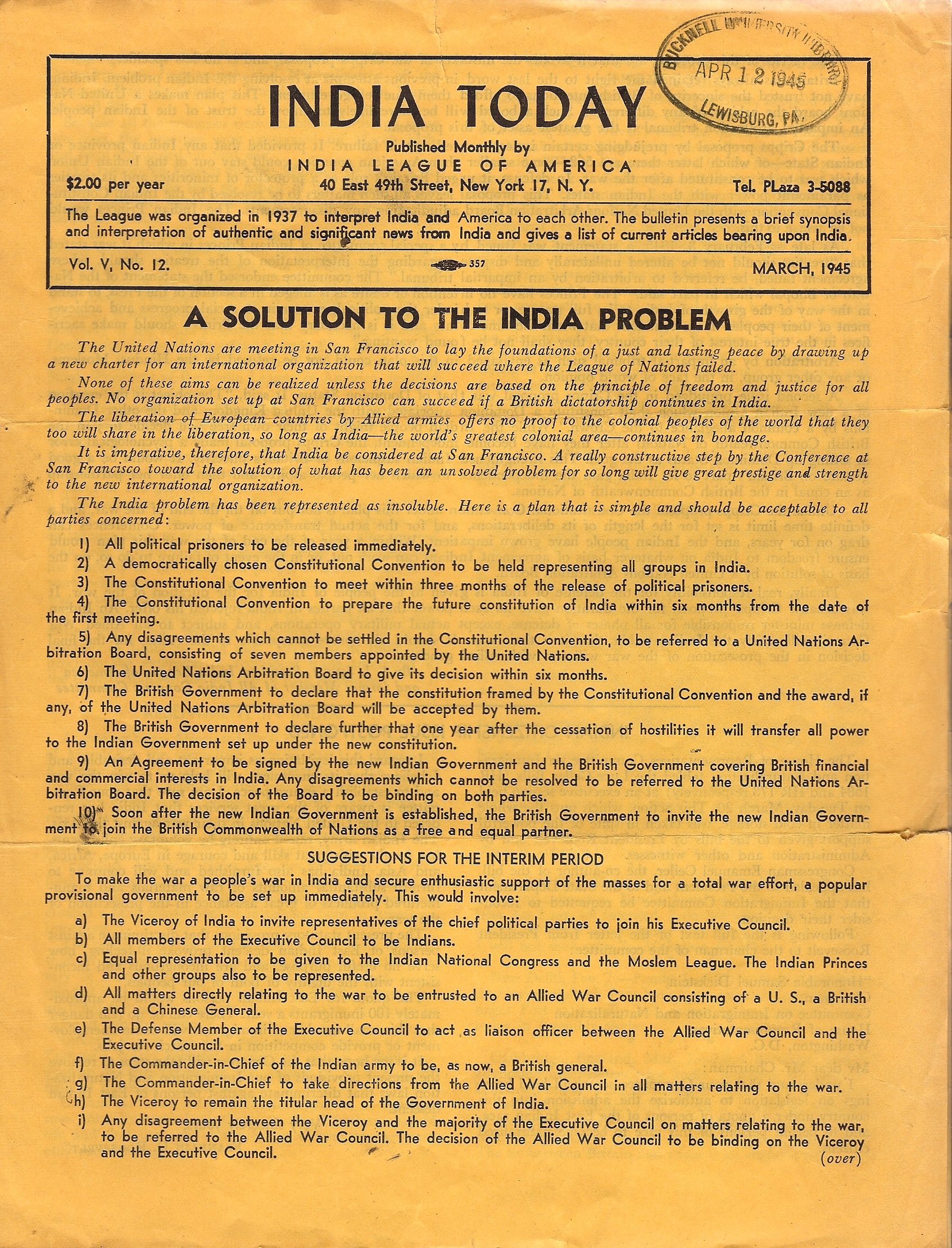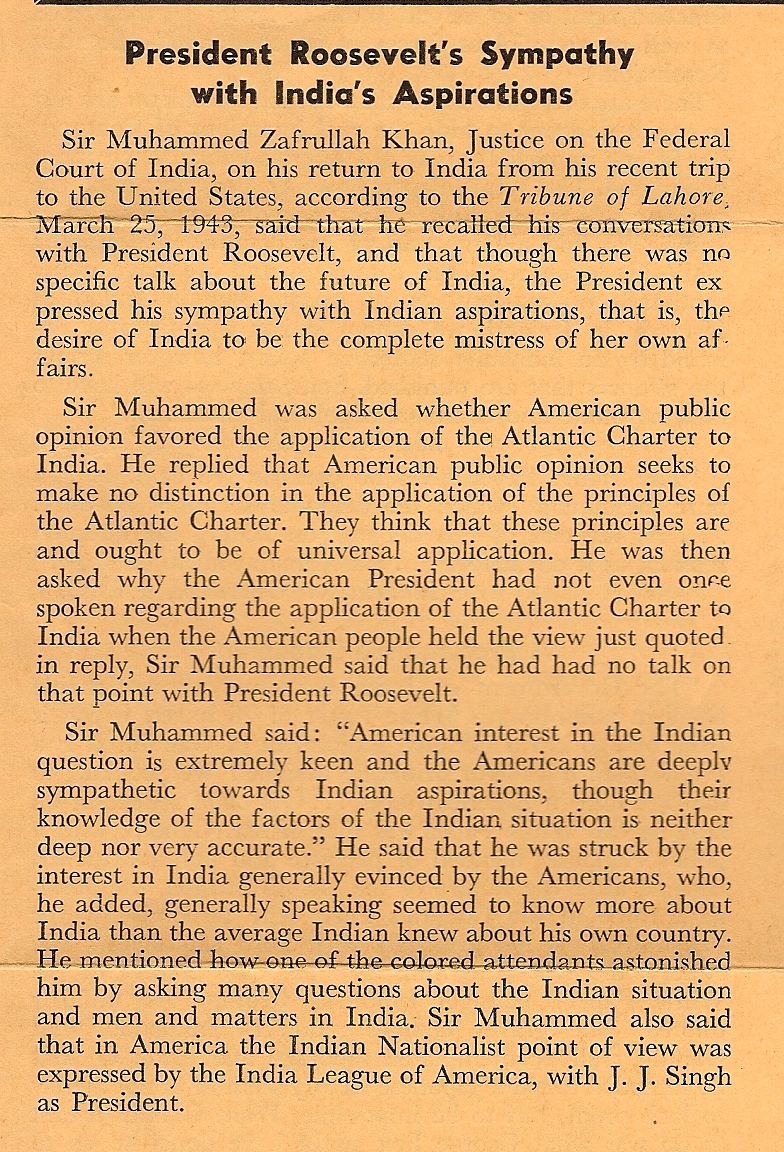“Mrs. Vijaya Lakshmi Pandit”
- Documents Pandit’s engagements from her attendance of the Conference of the Institute of Pacific Relations at Hot Springs, VA from January 6-16, to her reception in New York City Hall by Mayor Fiorello H. LaGuardia on January 18, to a January 27 White House lunch with Eleanor Roosevelt.
(February commitments in following issue)





